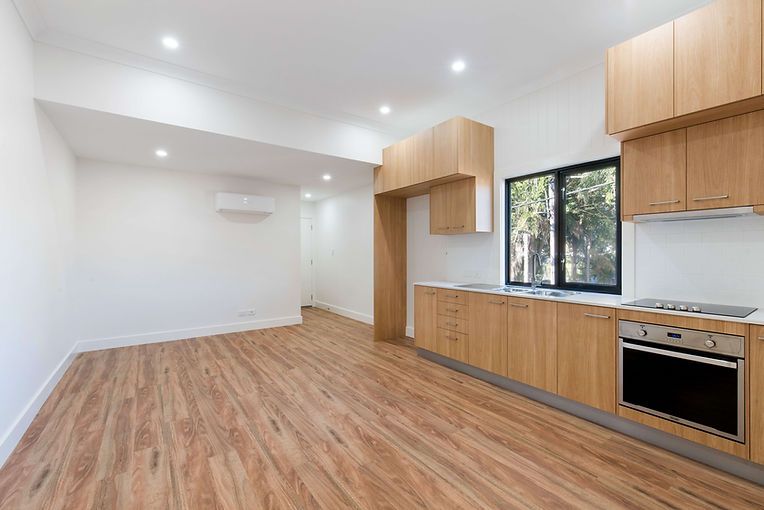Property Investor, Property Mentor, Buisness Advisor
We Help People Build Sustainable Property Empires
What is the Rentvest Strategy?
Have you ever wanted to live for lifestyle but couldn't afford there and still wanted to buy a property?
Rentvest is a popular strategy amongst property investors to get into the property market sooner, and it's not hard to see why. To rentvest allows you to purchase an investment property while continuing to live in your current home, live an inner-city or city life, live in a dream location to get you in the property market sooner. This means that you can take advantage of a rental property and growth in the property market without having to move out of your home or sacrifice your lifestyle.
Rentvest is a great property investment strategy for anyone looking to build wealth and create positive cash flow. With a good rentvesting strategy, you can take advantage of capital growth and rental income to help you get ahead financially.

So what is Rentvesting all about?
To get Started
To get started with rentvesting, you need a good property investment strategy. When prices are so high, it can be tough for first-time homebuyers to purchase a property. Property prices are at an all-time high, but by rentvesting, you can purchase an affordable property that will get you in the market sooner. Property ownership isn't out of reach, you just need to be a little more creative with your approach.
The Mortgage Broker
A mortgage broker holding an Australian credit licence is a great resource when you're looking to rentvest. They let you know upfront costs, and costs involved, give you independent advice and get you a suitable and relevant credit provider. They aim to get home buyers the lowest interest rate on their investment loans.
Even if you can only save a 10% deposit, rentvesting can still be a great option. And you may have to pay lenders' mortgage insurance, it's not dead money. The hardest part of getting started with rentvesting is understanding your borrowing power and loan amount.
Your borrowing power is the maximum amount you can afford to borrow, and this is based on your current income, rental yield, maintenance costs and expenses. Once you understand your borrowing power you can start your wealth-building and start looking for a suitable property.
It's important to understand your loan and repayment options before you get started. When paying principal and interest repayments, you will need to pay interest payments as well as loan repayments on the home loans. Your interest rate will be dependent upon your credit rating, and your repayment schedule will depend on your financial situation. You also have the chance for an offset account where you can pay additional funds towards the loan and receive interest on these savings.
What does it mean to rent?
If you decide to rent a property, you will be entering into a lease agreement with the owner of the property. The length of the lease can vary but is typically around 6 months to 1 year. You will be responsible for paying monthly rent as well as any utilities or other charges that may be required by the landlord. At the end of your lease, you will have the option to renew for another term or move out.
A landlord is a person who owns the property that you are renting. They are responsible for maintaining the property, managing repairs and collecting rent from tenants. They may also be responsible for other charges, such as water or electricity bills. It is important to read your lease agreement carefully to understand your responsibilities and rights as a tenant.
One of the benefits of renting is that you don't have to worry about maintenance or repairs. The landlord is responsible for these, and they will usually be carried out by a professional. This can be a great relief, especially if you're not familiar with DIY or don't have the time to do it yourself. It's also important to note that your landlord may increase the rent at any time during your lease, so it's important to be prepared for this.
The benefits of Rent-Vesting are:
-The property value will increase as the property prices increase.
- Rent from the investment property goes towards the home loan.
- It's tax-deductible.
-You get rental income and rental growth.
- Rent-Vesting is a flexible strategy – you can rent out part of your home, or an entire investment property, depending on your needs and circumstances.
- It gets you on the property ladder sooner so you can purchase a dream home sooner.
-Owning property becomes more achievable
-Building a property portfolio is easier as you have more lending capacity.
-Owner-occupied is not tax-deductible so you have to pay tax, whereas for rental properties you get tax deductions
When you buy an investment property that you don't live in can be a great way to get ahead financially. By rentvesting, you best of both worlds in the property market while can still live for lifestyle in your dream home and still a rental property. You can also use the rent money to pay off your investment loan, which can help you save money and diversify your investment portfolio.

What are the Cons of rentvesting?
- You may have to pay lenders' mortgage insurance.
- It can be more difficult to get a home loan than if you were to buy a property to live in.
- You will have less control over the condition of the investment property since you are renting and not living there yourself.
- You may have to pay capital gains tax when you sell the investment property.
- You may need to pay extra for property management if you can't manage the property yourself.
- Interest rates are higher for investors.
- You have to deal with a property manager when repairs are needed.
Rentvesting can be a great way to get started in the property market, but it's important to understand the pros and cons of rentvesting before you make any decisions. Talk to a financial advisor or mortgage broker to learn more about how rentvesting can work for your unique situation.
Why would you Rent-Vest?
Renting out an investment property can provide many financial benefits, including:
- A regular income stream:
The rent from your investment property can help to supplement your regular income, giving you financial security and peace of mind.
- A potential source of equity:
As the value of your investment property grows, so does your equity. This can be used to purchase additional investment properties or as a deposit on your own home.
- A hedge against inflation:
As rents typically increase in line with inflation, rent-vesting can help to protect your purchasing power and maintain your standard of living.
- Property effects on inflation rates
There is some evidence to suggest that property prices are more strongly correlated with inflation rates than other types of asset classes.
- Tax benefits:
The Australian Taxation Office (ATO) offers many tax benefits for investors, including deductions for the interest on your investment loan and depreciation of the property itself.
- Flexibility:
Rent-vesting gives you the flexibility to move if your circumstances change. You can also choose to rent out part of your home, or an entire investment property, depending on your needs.
- Property Portfolio:
Building a property portfolio was never easier when you rent-vest. As renting is not considered to be debt, your serviceability is a lot higher than if you were to buy a property to live in. This means that you can borrow more money to invest in property, which can help you build your portfolio more quickly.
So what are our thoughts?
Renting instead of buying a property is typically seen as a more financially-conservative decision. You're not responsible for mortgage repayments, property upkeep, or council rates - all of which can add up to a significant amount of money each month. Renting also gives you the flexibility to move if your circumstances change (such as getting a new job or starting a family).
Another reason why you might choose to rent is that it frees up cash that can be used to invest in other lucrative ventures. For example, you could use the extra money to buy shares or take out a high-interest savings account. This strategy is often referred to as "rent-vesting". By rent-vesting, you diversify your investment portfolio and reduce your overall risk.
If you're thinking about rent-vesting, it's important to seek professional advice from a qualified buyer's agent, mortgage broker and accountant. They will be able to provide expert guidance on the best properties to invest in and how to maximise your return. Rent-vesting is a popular investment strategy, but it's not without its risks. By working with a professional buyer's agent, you can maximise your chances of success.


